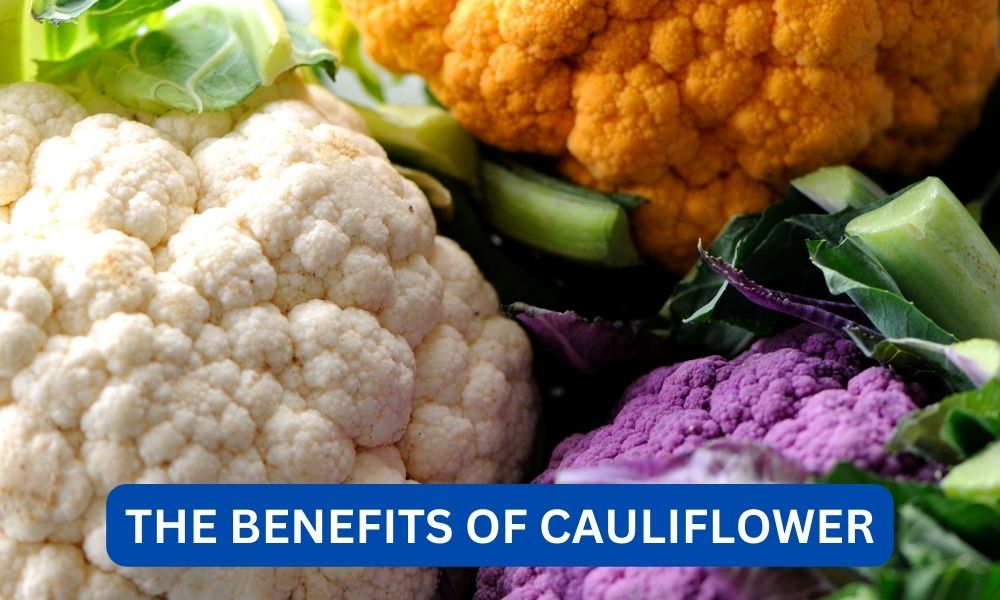Cauliflower, a member of the cruciferous vegetable family, has been gaining popularity in recent years as a versatile and nutritious ingredient. This humble vegetable, often overlooked in favor of its more colorful counterparts, is packed with essential vitamins, minerals, and antioxidants that offer a wide range of health benefits. From improving digestion to reducing the risk of chronic diseases, cauliflower has a lot to offer. In this article, we will delve into the many benefits of cauliflower and explore why it deserves a place on your plate.
Contents
What is Cauliflower?
Cauliflower, scientifically known as Brassica oleracea var. botrytis, is a cruciferous vegetable that belongs to the same family as broccoli, kale, and cabbage. It is believed to have originated in the Mediterranean region and has been cultivated for over 2,000 years. The name “cauliflower” comes from the Latin word caulis, which means “cabbage” and flos, which means “flower.” This is because the head of the cauliflower resembles a large white flower.
Cauliflower is typically white in color, but it can also be found in shades of green, purple, and orange. It has a firm, dense texture and a mild, slightly nutty flavor. It is a versatile vegetable that can be eaten raw, cooked, or used as a substitute for grains and other starchy foods.
Read:What are the benefits of ginger root?Nutritional Profile of Cauliflower
Cauliflower is often referred to as a “superfood” due to its impressive nutritional profile. It is low in calories and carbohydrates, making it an excellent choice for those trying to lose weight or manage their blood sugar levels. According to the United States Department of Agriculture (USDA), one cup (100 grams) of raw cauliflower contains:
- 25 calories
- 5 grams of carbohydrates
- 2 grams of fiber
- 2 grams of protein
- 77% of the recommended daily intake (RDI) of vitamin C
- 20% of the RDI of vitamin K
- 10% of the RDI of folate
- 8% of the RDI of potassium
- 7% of the RDI of vitamin B6
- 6% of the RDI of magnesium
Cauliflower is also a good source of other essential vitamins and minerals, including vitamin B5, vitamin B2, vitamin B1, vitamin E, phosphorus, and manganese. It is also rich in antioxidants, such as beta-carotene, quercetin, and kaempferol, which help protect the body against oxidative stress and inflammation.
Health Benefits of Cauliflower
Now that we have a better understanding of what cauliflower is and its nutritional profile, let’s explore the many health benefits it offers.
Read:What are the benefits of l lysine?1. Rich in Nutrients and Antioxidants
Cauliflower is a nutrient-dense vegetable that provides a wide range of essential vitamins, minerals, and antioxidants. These nutrients play a crucial role in maintaining overall health and preventing various diseases. For example, vitamin C is essential for a healthy immune system, while vitamin K is necessary for blood clotting and bone health. Antioxidants, on the other hand, help protect the body against chronic diseases, such as cancer and heart disease.
2. May Help Improve Digestion
Cauliflower is an excellent source of fiber, with one cup providing about 10% of the RDI. Fiber is essential for maintaining a healthy digestive system and preventing constipation. It also helps promote the growth of beneficial bacteria in the gut, which can improve digestion and reduce the risk of digestive disorders, such as inflammatory bowel disease (IBD) and irritable bowel syndrome (IBS).
3. May Help Reduce the Risk of Chronic Diseases
The antioxidants found in cauliflower, such as beta-carotene and quercetin, have been linked to a reduced risk of chronic diseases. These antioxidants help protect the body against oxidative stress and inflammation, which are known to contribute to the development of diseases like cancer, heart disease, and diabetes. Additionally, the high fiber content of cauliflower may also play a role in reducing the risk of these diseases.
Read:What are the benefits of milk?4. May Help Lower Cholesterol Levels
High levels of LDL (bad) cholesterol in the blood are a significant risk factor for heart disease. Studies have shown that consuming cruciferous vegetables, including cauliflower, may help lower LDL cholesterol levels. This is due to the high fiber and antioxidant content of these vegetables, which can help reduce the absorption of cholesterol in the gut and promote its excretion from the body.
5. May Help with Weight Loss
Cauliflower is a low-calorie and low-carbohydrate vegetable, making it an excellent choice for those trying to lose weight. It is also high in fiber, which can help promote feelings of fullness and reduce appetite. Additionally, cauliflower can be used as a substitute for starchy foods like rice and potatoes, making it a great option for those following a low-carb or ketogenic diet.
6. May Help Improve Brain Health
The high levels of choline found in cauliflower have been linked to improved brain function and memory. Choline is an essential nutrient that is involved in the production of neurotransmitters, which are crucial for communication between brain cells. Studies have also shown that choline may help protect against age-related cognitive decline and reduce the risk of neurological disorders like Alzheimer’s disease.
7. May Help Reduce Inflammation
Inflammation is a natural response of the body to injury or infection. However, chronic inflammation can lead to various health problems, including heart disease, diabetes, and arthritis. The antioxidants found in cauliflower, such as kaempferol and quercetin, have anti-inflammatory properties that can help reduce inflammation in the body. This makes cauliflower a valuable addition to an anti-inflammatory diet.
How to Incorporate Cauliflower into Your Diet
Now that we know about the many health benefits of cauliflower, you may be wondering how to incorporate it into your diet. Here are some delicious and creative ways to enjoy this versatile vegetable:
- Roast cauliflower florets with olive oil, garlic, and your favorite herbs and spices for a tasty side dish.
- Make cauliflower “rice” by pulsing cauliflower florets in a food processor until they resemble rice grains. You can then use it as a substitute for rice in stir-fries, fried rice, and other dishes.
- Use cauliflower as a pizza crust by blending cooked cauliflower with eggs, cheese, and herbs, then baking it until crispy.
- Make cauliflower “mashed potatoes” by steaming cauliflower and blending it with butter, milk, and your favorite seasonings.
- Add cauliflower to soups, stews, and curries for an extra boost of nutrients.
- Make cauliflower “steaks” by slicing a head of cauliflower into thick slices and roasting them with your favorite seasonings.
- Use cauliflower as a substitute for flour in recipes like pizza crust, bread, and pancakes.
Conclusion:
Cauliflower may not be the most colorful or eye-catching vegetable, but it certainly packs a punch when it comes to nutrition and health benefits. From improving digestion to reducing the risk of chronic diseases, this versatile vegetable has a lot to offer. So, the next time you’re at the grocery store, don’t overlook the humble cauliflower – your body will thank you for it.
Remember to incorporate cauliflower into your diet in creative and delicious ways, and reap the many benefits it has to offer. Whether you roast it, mash it, or use it as a substitute for starchy foods, this cruciferous vegetable is a valuable addition to any healthy diet.









